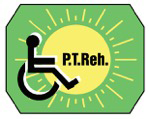


|
Current issue
Archive
Manuscripts accepted
About the journal
Editorial board
Reviewers
Abstracting and indexing
Contact
Instructions for authors
Publication charge
Ethical standards and procedures
Editorial System
Submit your Manuscript
|
2/2024
vol. 38 Original paper
Physiotherapeutic evaluation of pelvic floor muscle function in patients after radical prostatectomy using ultrasound imaging: retrospective study
Advances in Rehabilitation, 2024, 38(2), 30–35
Online publish date: 2024/07/09
Article file
- Burzynski_2024_10_03.pdf
[0.56 MB]
ENW EndNote
BIB JabRef, Mendeley
RIS Papers, Reference Manager, RefWorks, Zotero
AMA
APA
Chicago
Harvard
MLA
Vancouver
1. Ferlay J, Ervik M, Lam F, Colombet M, Mery L, Piñeros M, et al. Global Cancer Observatory: Cancer Today [Internet]. 2022 [cited 20 January 2023]. Available from: https://gco.iarc.fr/today 2.
Sung H, Ferlay J, Siegel RL, Laversanne M, Soerjomataram I, Jemal A, et al. Global cancer statistics 2020: GLOBOCAN estimates of incidence and mortality worldwide for 36 cancers in 185 countries. CA Cancer J Clin. 2021; 71(3): 209–49. 3.
Gandaglia G, Leni R, Bray F, Fleshner N, Freedland SJ, Kibel A, et al. Epidemiology and Prevention of Prostate Cancer. Eur Urol Oncol. 2021; 4(6): 877–92. 4.
Mottet N, Van den Bergh RCN, Briers E, Bourke L, Cornford P, De Santis M, et al. EAU-ESTRO-ESUR-SIOG Guidelines of Prostate Cancer. Arnhem: EAU; 2018. 5.
Sooriakumaran P, Nyberg T, Akre O, Haendler L, Heus I, Olsson M, et al. Comparative effectiveness of radical prostatectomy and radiotherapy in prostate cancer: observational study of mortality outcomes. BMJ. 2014; 348: g1502. 6.
Wallis CJ, Herschorn S, Saskin R, Su J, Klotz LH, Chang M, et al. Complications after radical prostatectomy or radiotherapy for prostate cancer: results of a population-based, propensity score-matched analysis. Urology. 2015; 85(3): 621–7. 7.
Pagliarulo V, Bracarda S, Eisenberger MA, Mottet N, Schröder FH, Sternberg CN, et al. Contemporary role of androgen deprivation therapy for prostate cancer. Eur Urol. 2012; 61(1): 11–25. 8.
Allan CA, Collins VR, Frydenberg M, McLachlan RI, Matthiesson KL. Androgen deprivation therapy complications. Endocr Relat Cancer. 2014; 21(4): T119–29. 9.
Chapple CR, MacDiarmid SA, Patel A. Urodynamics Made Easy. 3rd ed. Elsevier: London; 2009. 10.
Stafford RE, Mazzone S, Ashton-Miller JA, Constantinou C, Hodges PW. Dynamics of male pelvic floor muscle contraction observed with transperineal ultrasound imaging differ between voluntary and evoked coughs. J Appl Physiol. 2014; 116(8): 953–60. 11.
Klein EA. Radical prostatectomy for localized prostate cancer. [Internet] 2022 [cited 18 November 2022]. Available from: https://www.uptodate.com/contents/radical-prostatectomy-for-localized-prostate-cancer#H1413045884 12.
Rosario E, Rosario DJ. Localized Prostate Cancer. [Internet] 2022 [cited 20 January 2023]. Available from: https://www.ncbi.nlm.nih.gov/books/NBK563248/ 13.
Kania P, Wośkowiak P, Salagierski M. Perseveration of continence in radical prostatectomy patients: a laparoscopic surgeon’s perspective. Centr European J Urol. 2019; 72: 32–8. 14.
Mottet N, van den Bergh RCN, Briers E, Van den Broeck T, Cumberbatch MG, De Santis M, et al. EAU-EANM-ESTRO-ESUR-SIOG Guidelines on Prostate Cancer-2020 Update. Part 1: Screening, Diagnosis, and Local Treatment with Curative Intent. Eur Urol. 2021; 79(2): 243–62. 15.
Das AK, Kucherov V, Glick L, Chung P. Male urinary incontinence after prostate disease treatment. Can J Urol. 2020; 27(S3): 36–43. 16.
Nambiar AK, Bosch R, Cruz F, Lemack GE, Thiruchelvam N, Tubaro A, et al. EAU Guidelines on Assessment and Nonsurgical Management of Urinary Incontinence. Eur Urol. 2018; 73(4): 596–609. 17.
Jurys T, Durmala J. Quality of life assessment using EORTC QLQ questionnaires in the prostate cancer population treated with radical prostatectomy: a systematic review. Scand J Urol. 2021; 55(2): 90–7. 18.
Burkhard FC, Bosch JLHR, Cruz F, Lemack GE, Nambiar AK, Thiruchelvam N. Guidelines on Urinary Incontinence in Adults. EAU: Arnhem, 2018. 19.
Santos NA, Saintrain MV, Regadas RP, da Silveira RA, de Menezes FJ. Assessment of Physical Therapy Strategies for Recovery of Urinary Continence after Prostatectomy. Asian Pac J Cancer Prev. 2017; 18(1): 81–6. 20.
Jiang YH, Kuo HC. Recent research on the role of urodynamic study in the diagnosis and treatment of male lower urinary tract symptoms and urinary incontinence. Ci Ji Yi Xue Za Zhi. 2017; 29(2): 72–8. 21.
Elgohary HMI, Abdelzaher IE. Contemporary approaches to male urinary incontinence: a controlled randomized comparative study. Int J Physiother. 2015; 2(6): 933–8. 22.
Laurienzo CE, Magnabosco WJ, Jabur F, Faria EF, Gameiro MO, Sarri AJ, et al. Pelvic floor muscle training and electrical stimulation as rehabilitation after radical prostatectomy: a randomized controlled trial. J Phys Ther Sci. 2018; 30(6): 825–31. 23.
Nahon I, Waddington G, Adams R, Dorey G. Assessing muscle function of the male pelvic floor using real time ultrasound. Neurourol Urodyn. 2011; 30(7): 1329–32. 24.
Stafford RE, Coughlin G, Lutton NJ, Hodges PW. Validity of Estimation of Pelvic Floor Muscle Activity from Transperineal Ultrasound Imaging in Men. PLoS One. 2015; 10(12): e0144342. 25.
Neumann PB, O'Callaghan M. The Role of Preoperative Puborectal Muscle Function Assessed by Transperineal Ultrasound in Urinary Continence Outcomes at 3, 6, and 12 Months After Robotic-Assisted Radical Prostatectomy. Int Neurourol J. 2018; 22(2): 114–22. 26.
Didkowska J, Wojciechowska U, Olasek P. Cancer in Poland in 2015. Ministry of Health: Warsaw. 2017. 27.
Patel MI, Yao J, Hirschhorn AD, Mungovan SF. Preoperative pelvic floor physiotherapy improves continence after radical retropubic prostatectomy. Int J Urol. 2013; 20(10): 986–92. 28.
Chang JI, Lam V, Patel MI. Preoperative Pelvic Floor Muscle Exercise and Postprostatectomy Incontinence: A Systematic Review and Meta-analysis. Eur Urol. 2016; 69(3): 460–7. 29.
Hirschhorn AD, Kolt GS, Brooks AJ. Barriers and enablers to the provision and receipt of preoperative pelvic floor muscle training for men having radical prostatectomy: a qualitative study. BMC Health Serv Res. 2013; 13: 305. 30.
Glazener C, Boachie C, Buckley B, Cochran C, Dorey G, Grant A, et al. Conservative treatment for urinary incontinence in Men After Prostate Surgery (MAPS): two parallel randomised controlled trials. Health Technol Assess. 2011; 15(24): 1–290. 31.
Glazener C, Boachie C, Buckley B, Cochran C, Dorey G, Grant A, et al. Urinary incontinence in men after formal one-to-one pelvic-floor muscle training following radical prostatectomy or transurethral resection of the prostate (MAPS): two parallel randomised controlled trials. Lancet. 2011; 378(9788): 328–37. 32.
Nilssen SR, Mørkved S, Overgård M, Lydersen S, Angelsen, A. Does physiotherapist-guided pelvic floor muscle training increase the quality of life in patients after radical prostatectomy? A randomized clinical study. Scand J Urol Nephrol. 2012; 46(6): 397–404. 33.
Lin YH, Yu TJ, Lin VC, Wang HP, Lu K. Effects of early pelvic-floor muscle exercise for sexual dysfunction in radical prostatectomy recipients. Cancer Nurs. 2012; 35(2): 106–14. 34.
Santos NA, Saintrain MV, Regadas RP, da Silveira RA, de Menezes FJ. Assessment of Physical Therapy Strategies for Recovery of Urinary Continence after Prostatectomy. Asian Pac J Cancer Prev. 2017; 18(1): 81–6.
This is an Open Access journal, all articles are distributed under the terms of the Creative Commons Attribution-NonCommercial-ShareAlike 4.0 International (CC BY-NC-SA 4.0). License (http://creativecommons.org/licenses/by-nc-sa/4.0/), allowing third parties to copy and redistribute the material in any medium or format and to remix, transform, and build upon the material, provided the original work is properly cited and states its license.
|
    |